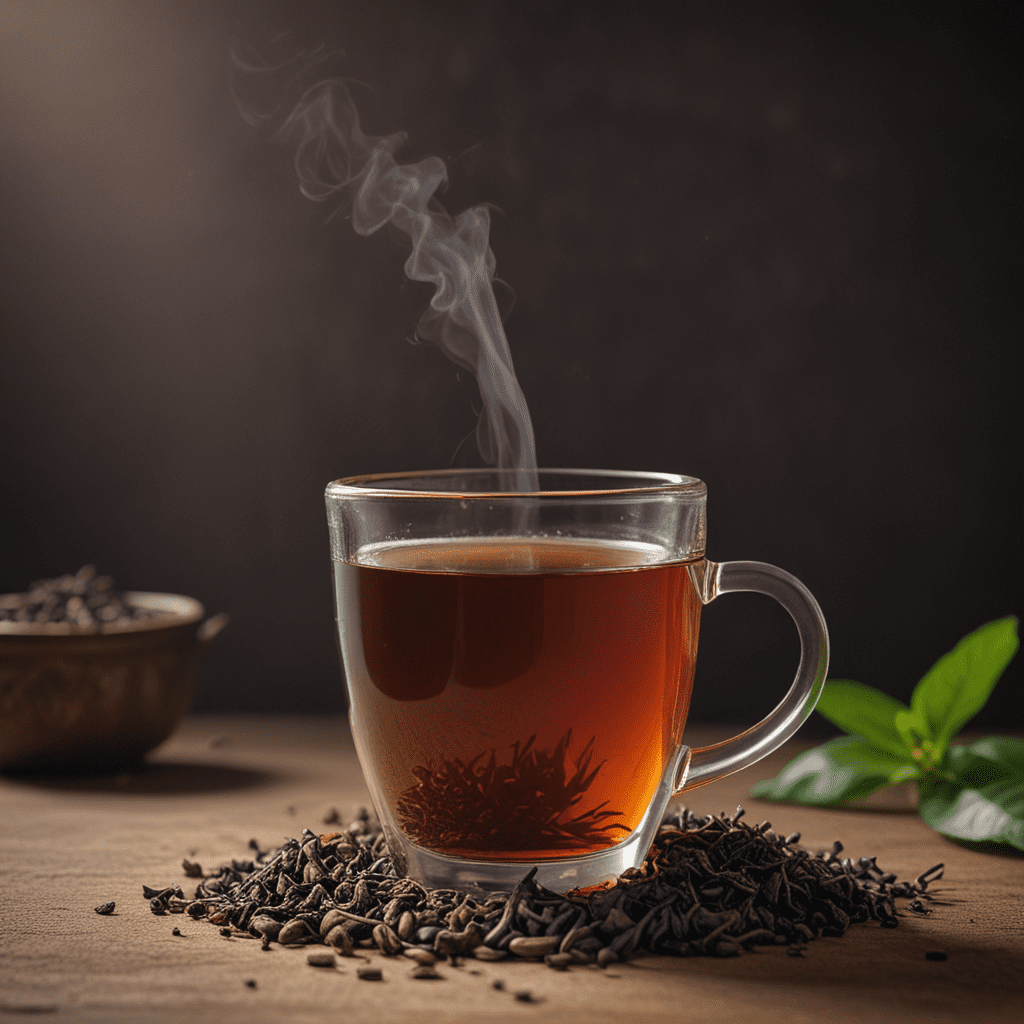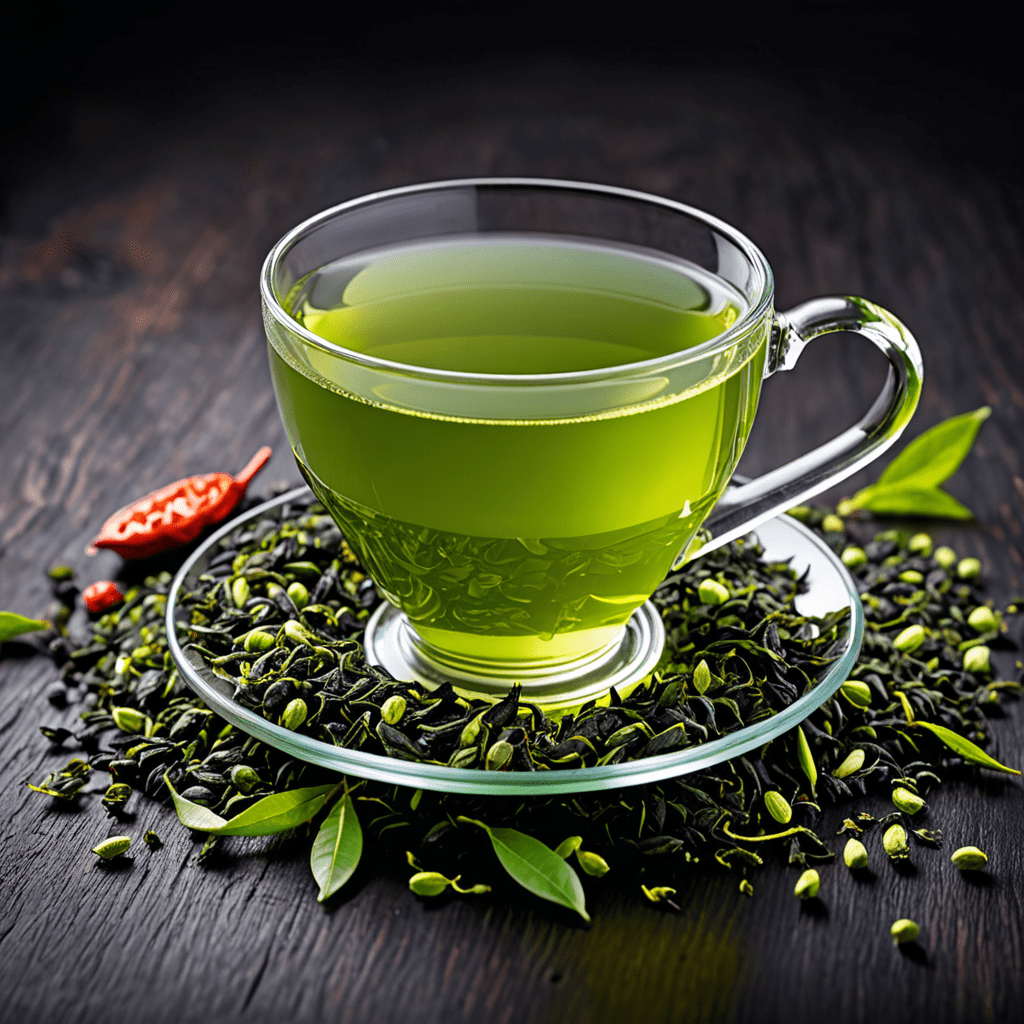
Assam Tea: The Cultural Significance in Every Cup
I. Historical Prelude
Assam tea, with its distinctive malty flavor and invigorating aroma, holds a profound cultural significance that transcends mere consumption. Its roots can be traced back to the mid-19th century, when British planters discovered wild tea plants growing amidst the lush greenery of Assam, a region in northeastern India. Recognizing its commercial potential, they established plantations and began cultivating the crop, marking the inception of Assam tea's journey to global prominence.
II. Geographical Context
Assam's unique geographical location plays a pivotal role in shaping the character of its tea. Nestled at the foothills of the Himalayas, the Brahmaputra River Valley provides fertile soil and an abundance of rainfall, creating an ideal environment for tea cultivation. The region's subtropical climate, with its distinct seasons, allows for optimal growth and maturation of the tea bushes, resulting in the production of robust, full-bodied leaves that form the foundation of Assam tea's celebrated flavor profile.
III. The Brewing Process
The brewing of Assam tea is an art form that has been passed down through generations. Traditionally, it involves using a clay or porcelain teapot, freshly drawn water, and loose tea leaves. The leaves are steeped in hot water for a few minutes, allowing their complex flavors and aromas to fully develop. The resulting brew is rich, brisk, and typically enjoyed with milk and sugar, although many savor its bold taste black.
IV. Health and Wellness Attributes
Beyond its cultural significance, Assam tea is also renowned for its health-promoting properties. It is a rich source of antioxidants, particularly flavonoids, which have been shown to have anti-inflammatory and disease-fighting effects. Studies have suggested that regular consumption of Assam tea may support cardiovascular health, reduce the risk of certain cancers, and improve cognitive function.
V. Social and Cultural Gatherings
In Assam and beyond, tea plays a central role in social and cultural gatherings. It is customary to offer guests a cup of freshly brewed tea upon arrival, symbolizing hospitality and warmth. Tea stalls and roadside eateries are common meeting places where locals and visitors alike engage in lively conversations and exchange stories over a cup of Assam tea. It serves as a catalyst for community bonding and strengthens social ties within the region.
VI. Religious and Spiritual Significance
In the realm of religion and spirituality, Assam tea holds a special place. It is offered as a sacred libation in various Hindu rituals and ceremonies, symbolizing purity and devotion. In some Buddhist traditions, tea is considered an aid to meditation and mindfulness, helping to focus the mind and promote inner peace.
VII. Economic Impact and Empowerment
The cultivation and production of Assam tea have a profound economic impact on the region. It is the primary source of livelihood for millions of tea workers and smallholder farmers, providing employment and financial stability to local communities. Tea plantations have also led to the development of supporting industries, such as packaging, transportation, and export, further stimulating economic growth in Assam.
VIII. Trade and Export
Assam tea is a globally recognized and sought-after commodity, exported to over 150 countries worldwide. Its distinctive flavor and aroma have made it a favorite among tea enthusiasts around the globe. India is the world's second-largest producer of tea, with Assam accounting for over half of the country's tea production. The export of Assam tea generates significant foreign exchange earnings and contributes to India's economic development.
IX. Tourism and Heritage
The tea gardens of Assam have become a major tourist attraction, drawing visitors who are eager to witness the beauty of the plantations and learn about the intricate process of tea cultivation. Tea estates offer guided tours, allowing visitors to immerse themselves in the history, culture, and traditions of tea production in the region. Assam's tea heritage is also celebrated through museums and festivals, showcasing the significance of tea in the state's identity.
X. Future Prospects and Sustainability
The future of Assam tea looks bright, with a growing demand for premium, high-quality teas globally. However, ensuring the sustainability of the tea industry is paramount. Sustainable farming practices, such as organic cultivation and fair trade initiatives, are being implemented to protect the environment and uplift the livelihoods of tea workers. Innovation in processing and marketing techniques is also crucial to maintain Assam tea's competitive edge in the global marketplace.
FAQs
What is the difference between Assam tea and other teas?
Assam tea is known for its robust, malty flavor and deep amber color. It is typically stronger and more full-bodied than other tea varieties, with a distinct earthy aroma.
How should I store Assam tea?
To preserve its freshness and flavor, Assam tea should be stored in an airtight container in a cool, dry place away from direct sunlight.
What is the best way to brew Assam tea?
For optimal flavor, use freshly drawn water and good quality Assam tea leaves. Allow the leaves to steep for 3-5 minutes, depending on desired strength. Milk and sugar can be added to taste.
Are there any health benefits to drinking Assam tea?
Assam tea is a good source of antioxidants and has been associated with various health benefits, including improved cardiovascular health, reduced risk of certain cancers, and enhanced cognitive function.

